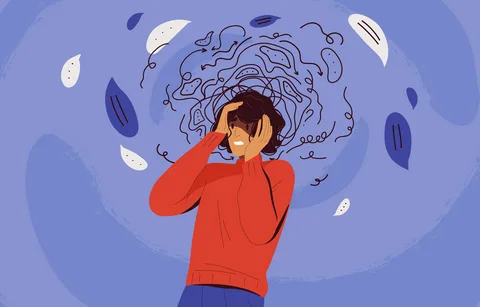Attention deficit hyperactivity disorder (ADHD) is a neuro-developmental disorder generally detected in children before the age of 12. The primary aspects of ADHD are inattention, hyperactivity, and impulsivity of the child. There are multiple symptoms that indicate the level of these aspects.
Diagnosing ADHD requires an evaluation from mental health professionals, especially clinical psychologists and psychiatrists. A precise diagnosis requires the inattention and/or hyperactivity to be long-lasting for it to be deciphered from the child’s usual behaviour.
There has been considerable research conducted on the sample of attention deficit and hyperactive children. Most of these researches have used standard scales, questionnaires, and action-oriented activities to confirm the presence of the disorder.
Uniquely, a research was conducted to study if eye movement can be tested as a diagnostic criterion for ADHD with the help of virtual reality, which is often used in gaming for children. The same can even be considered for ADHD diagnosis in adolescents and adults.
Research published in 2022 focused on the usage of virtual reality in the diagnosis of attention deficit hyperactivity disorder (ADHD).
It included 37 children with attention deficit hyperactivity disorder (ADHD) and a controlled group of 36 typically developing children who played a lifelike game using the virtual reality headset.
Virtual reality (VR) is the use of technology to create a virtual environment that stimulates a faux-immersed experience. This created environment is seen through the virtual reality headset or helmet. It works on visual stimulation.
The head-mounted display had an inbuilt 90 Hz eye tracker. The recorded eye movement patterns between the group of children with ADHD and the controlled group suggest that naturalistic virtual reality combined with eye tracking can successfully assist in the detection of attention deficit hyperactivity disorder (ADHD) in children.
For decades, attention deficit hyperactivity disorder has been diagnosed through goal-directed behaviour, interview and standardised testing that revolve around the attention span of a child under the age of 12.
The virtual task named Executive Performance in Everyday Living (EPELI) was used during the research. It allows quantification of attention and executive function deficits in the context of realistic conditions that are similar to the situations where the ADHD symptoms are manifested and clearly observed.
EPELI includes 13 task scenarios where the children perform everyday chores in a virtual environment. Each task scenario has a general topic, such as the child’s morning routine or their return from school.
Within these topics, they are to perform subtasks, such as eating their lunch, washing their hands, placing their backpacks, etc. These scenarios panned out for a period of 25 to 30 minutes, within which the eye movement data of the children were collected.
The five performance measures showed a clear difference in the eye movement patterns of the children with ADHD as compared to those of the controlled group. The development of visual attention in children with ADHD is delayed, as indicated by the findings of the research.
The use of the virtual reality task combined with parent interviews and other assessments done on the children can guarantee a speedy and apt detection of ADHD.
To conclude, the study showed that eye movements recorded in naturalistic settings prove to be a significant ADHD assessment, which can be used to assist the diagnosis with excellent accuracy. Together, these findings justify the benefits of VR eye tracking and naturalistic conditions in psychiatric research.




